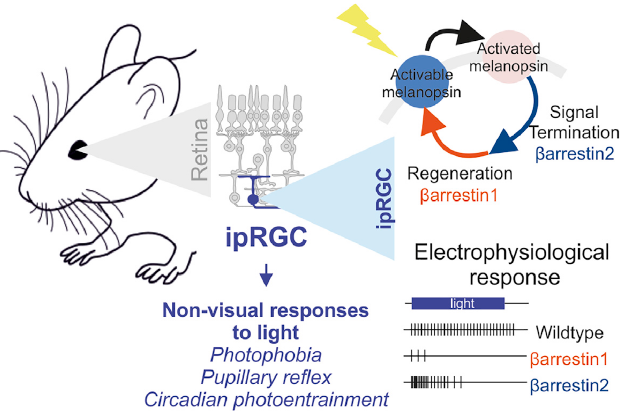Researchers at the Salk Institute in the United States have determined how certain cells in the eye handle ambient light and reset our biological clock. Late at night, when these cells are exposed to artificial light, our biological clocks can become confusing, leading to a range of health problems.
The innermost layer of our retina contains a group of light-sensitive cells. When these cells are exposed to light, a protein called melanopins is continuously regenerated, sending levels of ambient light directly to the brain to regulate consciousness, sleep and alertness. It plays a key role in synchronizing our biological clocks, and a 10-minute exposure to intense light suppresses melatonin, which regulates sleep.
In this study, researchers used molecular tools to initiate the production of melanopsin in mouse retinal cells. They found that some cells maintained their ability to respond lightly when exposed to repeated long-pulsed light, while others became insensitive.
The traditional wisdom is that the arrestin should stop the photoreaction of the cells within a few seconds of the light being on. However, the researchers were surprised to find that the inhibitory protein is actually required for melanin to respond to long-term light exposure.
In mice lacking inhibitory proteins (β-arrestin 1 and β-arrestin 2), retinal cells producing melanops were unable to maintain their sensitivity to light under prolonged exposure. This result just indicates that the inhibitory protein contributes to the regeneration of melanopsin in retinal cells.
"Our results indicate that the two inhibitory proteins achieve the regeneration of melanopsin in a unique way. One inhibitory protein plays a traditional role in stopping the photoreactive response, while the other inhibits the retinal sensitization cofactor of melanopsin. When these two steps alternate rapidly, the cells seem to be constantly responding to light," the researchers said.
To better understand the interaction of melanin and the eye's response to light, the researchers hope to find new targets to counter the circadian rhythm. In the future, researchers hope to find ways to influence melanopsin to reset the clock and treat insomnia.
EIAAB SCIENCE INC, WUHAN has developed β-arrestin 1 protein, antibody and ELISA kit and β-arrestin 2 protein, antibody and ELISA kit.


 460
460





 折扣:
折扣: